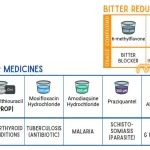If you’ve experienced those all-too-familiar “senior moments” or brain blips, you’re not alone. Concerns about brain health, especially as we age, are widespread. In fact, the American Academy of Neurology (AAN) suggests that everyone should consider a set of 12 crucial factors that influence long-term brain health. These factors are based on a recent article published in the Neurology journal, which was led by Dr. Linda Selwa from the University of Michigan in Ann Arbor.
“Neurologists are the experts in brain health, with the training and insight needed to help you keep your brain in top shape throughout life,” said Dr. Carlayne Jackson, president of the AAN, in a recent release.
To empower individuals to take charge of their brain health, here are 12 questions you should ask yourself — and discuss with your healthcare provider.
1. Sleep
Are you getting enough sleep to feel rested?
Sleep is crucial for brain health. Make sure to talk about issues like daytime sleepiness, shift work, insomnia, or any pain that disrupts your rest.
2. Mood and Mental Health
Do you have concerns about your mood, anxiety, or stress?
If you’re experiencing social isolation or loneliness, these mental health concerns should be addressed with your doctor. Be proactive and bring these up in your visits.
3. Food, Diet, and Supplements
Are you eating a balanced diet, and do you have questions about supplements?
Discuss your nutrition, any potential deficiencies, and whether specific vitamins or supplements may be beneficial.
4. Exercise
Are you getting enough physical activity?
Exercise not only benefits your body but is also vital for your brain. Talk to your doctor about ways to incorporate movement and balance exercises into your routine to help maintain independence.
5. Supportive Social Interactions
Are you maintaining regular contact with close family or friends?
Social connections are important for cognitive health. Ensure that you have the support and connections necessary for a healthy brain.
6. Trauma Avoidance
Are you taking precautions to avoid injury?
Be sure to ask about safety measures, such as wearing seatbelts, helmets, and fall prevention techniques. Occupational risks should also be discussed.
7. Blood Pressure
Are you managing your blood pressure effectively?
High blood pressure is a major risk factor for brain health. Ask your doctor about secondary causes of hypertension and ways to monitor your blood pressure at home.
8. Risks, Genetic, and Metabolic Factors
Do you have concerns about blood sugar, cholesterol, or family history of neurological diseases?
Recognizing genetic risks and managing factors like cholesterol, diabetes, and weight are key to brain health.
9. Affordability and Adherence
Are you having trouble affording medications or medical care?
Cost should never be an obstacle to proper healthcare. Discuss potential challenges with your doctor to find solutions, including assistance with Medicare and other supplements.
10. Infection
Are your vaccinations up to date?
Vaccines are essential, especially as we age. Discuss the age-specific immunization schedule with your doctor and any risks posed by occupation or travel.
11. Negative Exposures
Do you smoke, drink alcohol excessively, or use non-prescription drugs?
Exposures to substances like tobacco, alcohol, and pollutants can harm brain health. Regularly address these issues with your healthcare provider.
12. Social Determinants of Health
Do you have concerns about housing, transportation, or access to healthcare?
If you’re facing difficulties in these areas, your healthcare provider can guide you to resources that support your brain health.
Dr. Linda Selwa emphasizes that maintaining brain health is an ongoing effort. “Our article shows there are many ways to improve brain health individually,” she said. “Resolving to improve your brain health in the new year is a great start.”
Disclaimer: This article is for informational purposes only and should not be considered medical advice. Always consult a healthcare professional for concerns related to your brain health.
For more information on brain health, visit the Mayo Clinic and explore their expert tips.
Journal reference: Neurology











